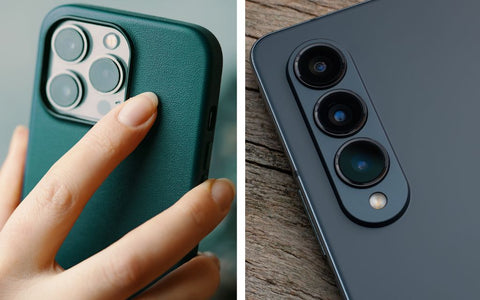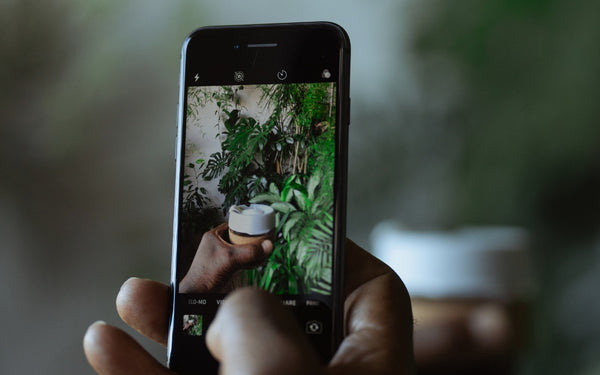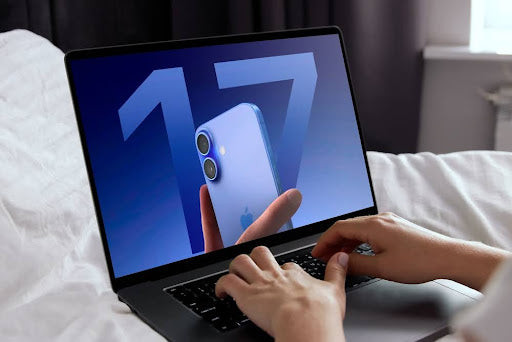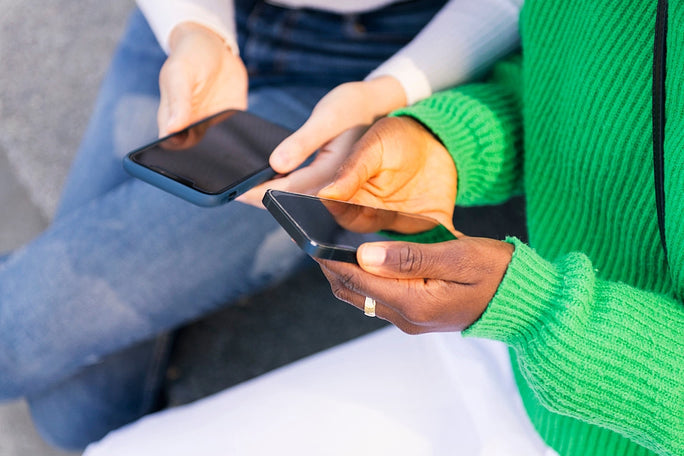Are iPhone Cameras Better Than Samsung Cameras?

Image via: Frank Mobile & Canva
Whoa, loaded question. We’re going to try to help you sort this one out. The smartphone industry has witnessed a fierce rivalry between two tech giants: Samsung and Apple. One of the key battlegrounds in this competition is the camera department. Let’s be real, we live in a content culture and almost everyone is using their smartphone for photos and videos; it only makes sense that it’s one of the main points that we consider when purchasing a phone. But which camera reigns supreme?
Both Samsung and Apple have consistently pushed the boundaries of smartphone photography, introducing cutting-edge technologies and innovative features. Let’s do a comprehensive comparison of Samsung smartphone cameras vs. iPhone smartphone cameras, analysing their key features, performance, and overall capabilities. By the end, we hope to help shed light on the question: "Are Apple iPhone cameras better than Samsung smartphones cameras?"
Megapixel Count:
Megapixel count has long been considered a primary metric for camera quality. Samsung and Apple have taken different approaches in this regard. Samsung, known for its Galaxy series, has embraced higher megapixel counts in most of their flagship devices, such as the Galaxy S23 Ultra, which boasts a remarkable 200-megapixel wide-angle camera. In contrast, Apple's iPhones have traditionally featured lower megapixel counts. However, with the iPhone 14 Pro Apple made the jump (at last) to a 48 megapixel wide-angle lens. When considering megapixel count, It’s important to note that megapixels alone don’t determine image quality. Other factors, including sensor size, pixel size, and image processing algorithms, play a role in capturing stunning photos and video.
Sensor Size and Pixel Size:
The size of the camera sensor and individual pixels can greatly impact image quality, especially in challenging lighting conditions. Samsung's flagship devices, such as the Galaxy S series, often feature larger camera sensors, allowing for more light to reach the pixels. This results in improved low-light performance and reduced noise levels. Conversely, Apple's iPhones generally employ smaller camera sensors but compensate for it through advanced computational photography techniques.
Computational Photography:
Apple has long been acclaimed for its prowess in computational photography. iPhones leverage advanced image processing algorithms, including Smart HDR and Deep Fusion, to enhance image quality. These techniques enable improved dynamic range, better detail retention, and optimized exposure levels. The Night mode on iPhones also delivers impressive low-light photography, thanks to its ability to merge multiple exposures.
Samsung, on the other hand, has made substantial strides in computational photography with its One UI and camera software improvements. Features like Single Take and Night Mode have been introduced to compete with Apple's offerings. Samsung's cameras excel at capturing vibrant colours and offer a variety of shooting modes to cater to different photography styles.

Image Source via: Canva
In addition to their technical advancements, both Samsung and Apple have worked hard to make advanced photography techniques accessible to everyday users, even if they're not professional photographers. They've introduced features like Pro mode on Samsung devices and ProRAW format on iPhones, which let you tweak settings like ISO, shutter speed, and white balance for more control over your shots.
Camera interfaces and apps have become more user-friendly too, making it a breeze to switch between different shooting modes, try out fun filters, and get creative with your photos. By doing all this, Samsung and Apple have made it possible for anyone to capture amazing, professional-looking pictures without needing a photography degree. So now, you can take stunning photos and feel like a pro, all with just a few taps on your smartphone.
Zoom Capabilities:
Zoom functionality is an area where Samsung has gained an edge over Apple. Samsung's flagship devices, including the Galaxy S21 Ultra, offer powerful optical zoom capabilities, with up to 100x Space Zoom. This allows users to capture detailed shots even from a considerable distance. In comparison, iPhones traditionally offer limited optical zoom options, relying more on digital zoom, which can result in some loss of image quality.
Video Capabilities:
Both Samsung and Apple excel in video recording capabilities. Samsung's smartphones offer impressive 8K video recording, providing users with incredibly high-resolution footage. Additionally, Samsung's Pro Video mode offers extensive manual controls for advanced videography. Apple, known for its high-quality video recording, incorporates features like Dolby Vision HDR and advanced stabilization, providing users with professional-grade video results.
When it comes to choosing between Apple iPhone cameras and Samsung cameras, it's like picking your favorite flavor of ice cream – both have their own delightful qualities 🍦. Apple iPhones are like photography wizards, using computational magic to make your pictures look stunning. With features like Smart HDR, Deep Fusion, and Night mode, they turn ordinary moments into extraordinary memories. iPhones are perfect for those who love taking beautiful photos effortlessly and enjoy a user-friendly experience that feels as smooth as butter.
On the other hand, Samsung cameras are like the Swiss Army knives of photography. They come armed with higher megapixel counts, powerful zoom capabilities, and a range of shooting modes to suit every occasion. Whether you want to capture tiny details or zoom in on faraway subjects, Samsung has you covered. Plus, their One UI and camera software bring a splash of excitement with features like Single Take and Night Mode, making your photos pop with vibrant colors even in dimly lit settings. If you crave versatility and love exploring creative options, Samsung cameras are a blast!
Ultimately, it's all about personal preferences and what brings out the photographer in you. If you enjoy the magic of computational photography and a user-friendly experience, go for an Apple iPhone. But if you want to unleash your inner adventurer and have the power of versatility and zoom in your hands, Samsung cameras are the way to go. So, grab your favourite ice cream (and maybe your smartphone) and start capturing those picture-perfect moments with the camera that suits your style!
You might want to check out:
What is cinematic mode and how do you use it?
What is computational photography?
Shop for refurbished phones on Frank Mobile



